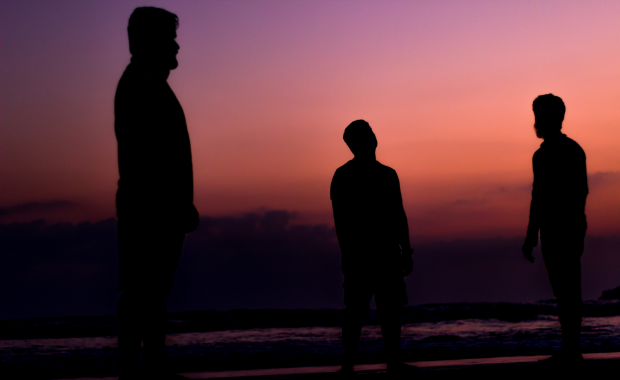Life
Don’t Burn Your Bridges Life is Too Short to Hold Grudges
Life is a blend of sweet and bitter experiences. Cherish your sweet experiences and annihilate your bitter experiences

People have good and bad memories. They cherish their good memories and demolish bad memories. What happens when the bad memories haunt them because of their bitter experiences with others?
At times they are in dilemma whether to forget their bad memories and forgive the wrongdoers. Is it essential to burn bridges to forget the unpleasant experiences and events arising from wrongdoers?
In this regard, we will discuss whether you must burn your bridges or not in life.
Burning Your Bridges is Situational and Contextual
The phrase ‘don’t burn your bridges’ has different meanings. It means basically not breaking relations with others. Humans are social animals and they cannot survive by living alone.
They need people around them to connect and communicate; share their emotions, and express their expectations to accomplish their needs.
At the same time, they must choose the right people with a positive attitude to lead healthy, happy, and peaceful life.
It is not advisable to burn your bridges except in extreme cases where your relationship costs your integrity and credibility. It is better to burn your bridges when an individual is a liability. It is better to burn your bridges when the person becomes too difficult for you to reform.
If you find ordinary people with the right attitude, you must keep them close to your heart. Never value relations based on wealth because fortunes fluctuate in life.
Some people burn their bridges due to miscommunication, perceptions, or hearsay. They must eliminate the barriers in communication; take a relook at their perceptions, and verify the facts and figures before burning their bridges.
You must note that burning your bridges with the right people is burning your fingers. Above all, burning your bridges is situational and contextual.
Burning Bridges in Digital Era
We live in a digital era with plenty of social media platforms. On social media, people build bridges quickly and burn bridges quickly because they are virtually connected with some expectations and aspirations. Most of them connect for exploring opportunities.
Some of them disconnect once their expectations are accomplished which is not appropriate. Remember that social media is a tool to connect with people and maintain relations for a long time for mutual benefit.
“Don’t burn bridges. You’ll be surprised how many times you have to cross the same river.” —H. Jackson Brown, Jr.
Burning Bridges in my Personal Life
Burning a bridge involves a risk. You must think many times before burning your bridges, especially with your relatives and close friends. I am a victim of rogue relatives in my personal life.
Some of them are responsible for the pain and suffering of me, my wife, and two sons. But I did not burn the bridges. Instead, I maintained a safe distance from them to avoid landing in further trouble.
Some of them made efforts to reconnect with me to exploit my brand and connections when I have grown internationally as an award-winning author. I respected them but did not allow them to damage my reputation.
Remember that nobody is right. We are humans and make mistakes in life. Sometimes circumstances compel people to behave wrongly. Hence, don’t carry unpleasant experiences and events.
Time will heal the wounds. Offer enough time for the other person to rectify and reform. Think on a clean slate to begin a new era.
We need people from cradle to grave whether they are good or bad. We must make conscious choices with whom to build bridges and burn bridges. Those who cross paths with good people grow in their lives and add value to others.
Life is all about breaking barriers and building bridges. Of course, some bridges must be burned to lead a peaceful and happy life. When you intend to avoid burning your bridges, choose a limited, quality, and healthy network of friends.
In this high-tech world, the quality of connections matters more than the quantity of connections.
Life is Great!
Life is a blend of sweet and bitter experiences. Cherish your sweet experiences and annihilate your bitter experiences. When you burn your bridges, you rarely will have an opportunity to reconnect with them.
Hence, avoid burning your bridges to lead a happy and meaningful life.
There are no permanent friends and permanent foes in the world. Then why do you burn your bridges and endeavor again to build them? Think before you burn your bridges because the world is very small.
To conclude, life is too short to keep grudges. Let bygones be bygones. Forgive your foes. Be magnanimous. Be compassionate. Make a difference.
Did You Know
How Skilled Migrants Are Building Successful Careers After Moving Countries
Behind every successful skilled migrant career is a mix of resilience, strategy, and navigating systems built for locals.

Moving to a new country for work is exciting, but it can also be unnerving. Skilled migrants leave behind familiar systems, networks, and support to pursue better job opportunities and a better future for their families. (more…)
Life
10 Research-Backed Steps to Create Real Change This New Year
This New Year could finally be the one where you break old patterns and create real, lasting change.

Every New Year, we make plans and set goals, but often repeat old patterns. (more…)
Life
9 Harsh Truths Every Young Man Must Face to Succeed in the Modern World
Before chasing success, every young man needs to face these 9 brutal realities shaping masculinity in the modern world.

Many young men today quietly battle depression, loneliness, and a sense of confusion about who they’re meant to be.
Some blame the lack of deep friendships or romantic relationships. Others feel lost in a digital world that often labels traditional masculinity as “toxic.”
But the truth is this: becoming a man in the modern age takes more than just surviving. It takes resilience, direction, and a willingness to grow even when no one’s watching.
Success doesn’t arrive by accident or luck. It’s built on discipline, sacrifice, and consistency.
Here are 9 harsh truths every young man should know if he wants to thrive, not just survive, in the digital age.
1. Never Use Your Illness as an Excuse
As Dr. Jordan B. Peterson often says, successful people don’t complain; they act.
Your illness, hardship, or struggle shouldn’t define your limits; it should define your motivation. Rest when you must, but always get back up and keep building your dreams. Motivation doesn’t appear magically. It comes after you take action.
Here are five key lessons I’ve learned from Dr. Peterson:
-
Learn to write clearly; clarity of thought makes you dangerous.
-
Read quality literature in your free time.
-
Nurture a strong relationship with your family.
-
Share your ideas publicly; your voice matters.
-
Become a “monster”, powerful, but disciplined enough to control it.
The best leaders and thinkers are grounded. They welcome criticism, adapt quickly, and keep moving forward no matter what.
2. You Can’t Please Everyone And That’s Okay
You don’t need a crowd of people to feel fulfilled. You need a few friends who genuinely accept you for who you are.
If your circle doesn’t bring out your best, it’s okay to walk away. Solitude can be a powerful teacher. It gives you space to understand what you truly want from life. Remember, successful men aren’t people-pleasers; they’re purpose-driven.
3. You Can Control the Process, Not the Outcome
Especially in creative work, writing, business, or content creation, you control effort, not results.
You might publish two articles a day, but you can’t dictate which one will go viral. Focus on mastery, not metrics. Many great writers toiled for years in obscurity before anyone noticed them. Rejection, criticism, and indifference are all part of the path.
The best creators focus on storytelling, not applause.
4. Rejection Is Never Personal
Rejection doesn’t mean you’re unworthy. It simply means your offer, idea, or timing didn’t align.
Every successful person has faced rejection repeatedly. What separates them is persistence and perspective. They see rejection as feedback, not failure. The faster you learn that truth, the faster you’ll grow.
5. Women Value Comfort and Security
Understanding women requires maturity and empathy.
Through books, lectures, and personal growth, I’ve learned that most women desire a man who is grounded, intelligent, confident, emotionally stable, and consistent. Some want humor, others intellect, but nearly all want to feel safe and supported.
Instead of chasing attention, work on self-improvement. Build competence and confidence, and the rest will follow naturally.
6. There’s No Such Thing as Failure, Only Lessons
A powerful lesson from Neuro-Linguistic Programming: failure only exists when you stop trying.
Every mistake brings data. Every setback builds wisdom. The most successful men aren’t fearless. They’ve simply learned to act despite fear.
Be proud of your scars. They’re proof you were brave enough to try.
7. Public Speaking Is an Art Form
Public speaking is one of the most valuable and underrated skills a man can master.
It’s not about perfection; it’s about connection. The best speakers tell stories, inspire confidence, and make people feel seen. They research deeply, speak honestly, and practice relentlessly.
If you can speak well, you can lead, sell, teach, and inspire. Start small, practice at work, in class, or even in front of a mirror, and watch your confidence skyrocket.
8. Teaching Is Leadership in Disguise
Great teachers are not just knowledgeable. They’re brave, compassionate, and disciplined.
Teaching forces you to articulate what you know, and in doing so, you master it at a deeper level. Whether you’re mentoring a peer, leading a team, or sharing insights online, teaching refines your purpose.
Lifelong learners become lifelong leaders.
9. Study Human Nature to Achieve Your Dreams
One of the toughest lessons to accept: most people are self-interested.
That’s not cynicism, it’s human nature. Understanding this helps you navigate relationships, business, and communication more effectively.
Everyone has a darker side, but successful people learn to channel theirs productively into discipline, creativity, and drive.
Psychology isn’t just theory; it’s a toolkit. Learn how people think, act, and decide, and you’ll know how to lead them, influence them, and even understand yourself better.
Final Thoughts
The digital age offers endless opportunities, but only to those who are willing to take responsibility, confront discomfort, and keep improving.
Becoming a man today means embracing the hard truths most avoid.
Because at the end of the day, success isn’t about luck. It’s about who you become when life tests you the most.
Change Your Mindset
The Four Types of Happiness: Which One Are You Living In?
Most people chase success only to find emptiness, this model reveals why true happiness lies somewhere else.

In a world driven by rapid technological growth and constant competition, many people unknowingly trade joy for achievement. (more…)
-

 Health & Fitness2 weeks ago
Health & Fitness2 weeks agoWhat Minimalism Actually Means for Your Wellness Choices
-

 News1 week ago
News1 week agoBrandon Willington Builds 7-Figure Business by Ignoring Almost Everything
-

 Did You Know2 weeks ago
Did You Know2 weeks agoWhy Most Online Courses Fail and How to Fix Them
-

 Business2 weeks ago
Business2 weeks agoIf Your Business Internet Keeps Letting You Down, Read This
-

 Business17 hours ago
Business17 hours agoEntrepreneur’s Guide to Pay Stubs: Why Freelancers and Small Business Owners Need a Smart Generator
























